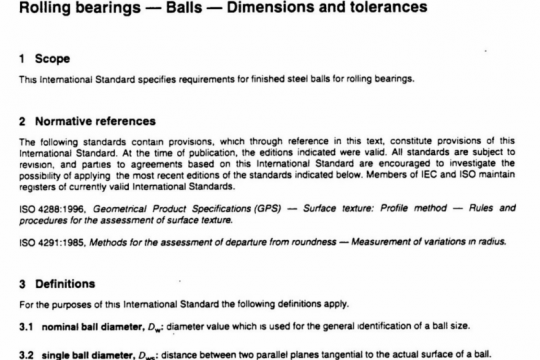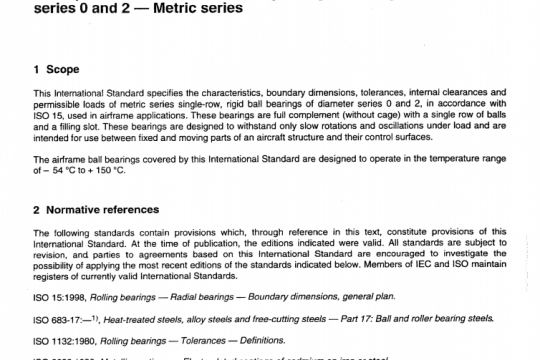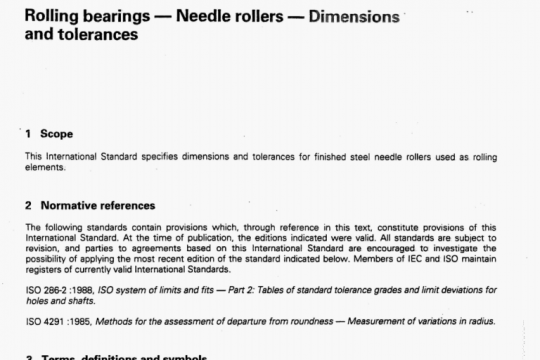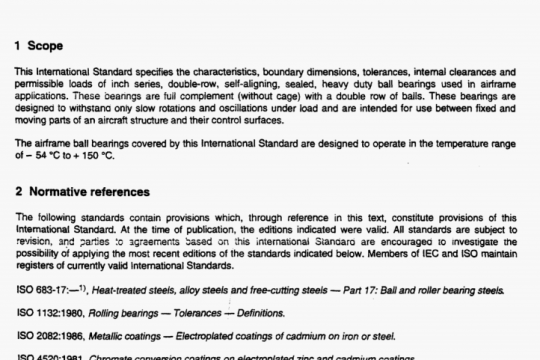ABMA 11:2014 pdf free
ABMA 11:2014 pdf free.Load Ratings and Fatigue Life for Roller Bearings
This standard applies to roller bearings made from hardened, good quality bearing steel. While a complete metallurgical description is beyond the scope of this standard, typical cleanliness and material composition specifications for bearing quality steel are given in ASTM A295/A295M and A485 for through hardening steels, and in ASTM A534 for carburizing steels. Typical hardness levels range from HRC 58 to 65 for bearing rings, washers and rollers.
The fcm factors specified in basic load rating formulae are valid only for those roller bearing configurations specified in section 4.1 above. This standard is not applicable to designs where the rolling elements operate directly on a shaft or housing surface, unless that surface is equivalent in all respects to the bearing ring (or washer) raceway it replaces.
Basic rating life calculated according to this standard is based on the assumption that the bearing is adequately lubricated. Determination of adequate lubrication depends upon the bearing application. An adequate amount of an appropriate type of lubricant is essential to achieving expected performance. The lubricant must be free of excessive contaminants and of a viscosity level that will provide a film thickness somewhat greater than the rolling contact surfaces’ composite roughness at the operating temperature.
Basic rating life calculated according to this standard assumes that the bearing inner and outer rings are rigidly supported, and that the inner and outer ring axes are properly aligned. Bearing rings (or washers) must be mounted so that any deformation of rings as a result of mounting compliance is small compared to contact deformation under the applied load.
Radial roller bearing basic rating life calculated according to this standard is based on the assumption that only a nominal internal clearance occurs in the mounted bearing at operating speed, load and temperature. Internal clearance may be needed to account for effects of interference fits and thermal gradients; however, excessive clearance will reduce life. Negative clearance will also decrease life and increase friction. Excessive negative clearance may lead to bearing seizure.ABMA 11 pdf free download.




